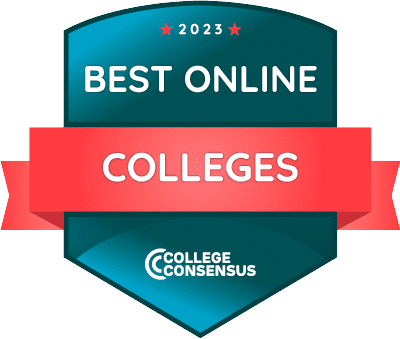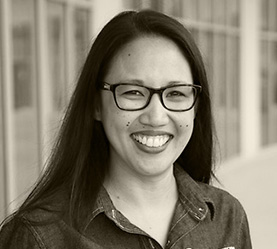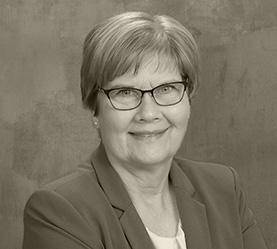Expand Your Reach with Online Education and Training
Increase your marketability in today’s economy by updating your skills in the growing field of online education and open the door to new online education and training opportunities.
Cal State East Bay’s Certificates in eLearning are designed to help professionals gain firsthand experience of the evolving contemporary practice and trends in eLearning design, technology, coordination, innovation, theories, and optimization in virtual learning.
Choose a Certificate that Fits Your Unique Needs
Depending on your background and career goals, you can choose between four different certificates in Online Teaching and Learning, eLearning Design, eLearning Technology, and eLearning Administration so that you can tailor your education to what best suits you and your organization's needs.

Ranked among the Top Consensus Best Value Online Schools for 2023

Accredited by the Western Association of Schools and Colleges (WASC)
Advance at Your Own Speed
The eLearning Certificates offer a flexible and online format that is perfect for busy working professionals like you, because it allows you to participate on your own time. In fact, all courses are offered asynchronously which means you’ll never have to log in to your class at any specific time.
And just because you’re an online student, doesn’t mean you won’t have the opportunity to expand your professional network. Throughout the program, you’ll work on tasks in small groups to problem-solve, collaborate, and interact with other professionals from around the world.
Meet the Growing Demand for eLearning Opportunities
As the demand for online education continues to grow, the need for qualified eLearning professionals is ever increasing. The training and skills acquired in one of the four eLearning Certificates can transfer into almost any area, including higher education, K-12, corporate and military training, educational administration, curriculum design, technical support, or any other eLearning field.
Furthermore, equipped with your Certificate in eLearning from an accredited university, you’ll show potential employers that you have the specific skills and expertise in the growing field of online learning to increase your marketability in today’s economy.
Occupational Trends
The e-learning market is projected to grow by 20.5 percent from 2022 to 2030.
—Polaris Market Research
Employment of training and development specialists is projected to grow 6 percent from 2022 to 2032, faster than the average for all occupations. Job prospects should be best for those with experience developing online and mobile training programs.
—U.S. Bureau of Labor Statistics
About 857,600 job openings are projected each year, on average, for educational instruction and library occupations.
—U.S. Bureau of Labor Statistics
How can an eLearning Certificate impact your career? »
Become an Integral Member of Your eLearning Team
Here’s what you should expect to achieve as a student in the eLearning program:
- Assess characteristics of online learners and components of an online teaching and learning environment.
- Synthesize an effective online teaching and learning environment based on current research, recent innovative ideas, and best practices.
- Apply teaching strategies, learning theories, and design models to online curriculum development.
- Apply current teaching and learning tools/technologies to an online learning environment.
- Design a successful implementation of an online program.
- Develop a well designed quality online curriculum/course.
As a Cal State East Bay graduate, you’ll leave the program equipped with the tools necessary to implement effective online teaching and training materials from beginning to end, making you invaluable in any workplace.
A Strong Foundation to the Master of Science in eLearning
If you are interested in continuing your education in the future, earning any of our eLearning Certificates can fulfill certain initial course requirements of Cal State East Bay’s MS in eLearning (MSeL), a program accredited by the Western Association of Schools and Colleges.
Become a Dynamic eLearning Professional
The eLearning Certificates are structured around a set of core courses, enabling you to develop general eLearning perspectives and skills, with a unique opportunity to specialize in a distinct area.
The eLearning program currently offers certificates in Online Teaching and Learning, eLearning Design, eLearning Technology, and eLearning Administration.
Certificate Requirements
To earn any of the eLearning Certificates, you must meet the following requirements:
- Complete 12 or 15 semester units (4 or 5 courses, depending on which certificate you are pursuing) of approved graduate work, subject to the following conditions:
- All units must have been earned within the past five (5) years immediately preceding completion of the requirements for the certificate.
- 3.0 GPA
Please note, the department requires that all courses in the eLearning program be taken for a letter grade. No CR/NC grades for courses will be accepted toward the certificate requirements.
Course schedules, including the term courses are offered in, are subject to change. For the most up-to-date information on courses currently being offered, visit the course details page.
Certificate in Online Teaching and Learning
The Certificate in Online Teaching and Learning focuses on your individual background, taking into consideration your subject area of expertise and institutional or corporate setting. Throughout the program, you’ll learn the evolving “best practices” in the online teaching field and how to transform your course or training materials into an engaging and interactive online experience.
| Required Courses | Units |
|---|---|
| OTL 601: Introduction to Online Teaching and Learning | 3 |
| OTL 602: Instructional Methods for Online Instruction | 3 |
| OTL 603: Technology Tools for Online Instruction | 3 |
| OTL 604: Designing Curriculum for Online Instruction | 3 |
Certificate in eLearning Design
The Certificate in eLearning Design prepares and empowers educators, trainers, and all aspiring professionals to effectively design online courses and learning modules in a wide variety of fields. Throughout the program, you’ll focus on learning innovative design principles, methods, and systems so that you can build training modules or online curriculums in any online work environment.
| Required Courses | Units |
|---|---|
| OTL 601: Introduction to Online Teaching and Learning | 3 |
| OTL 602: Instructional Methods for Online Instruction | 3 |
| OTL 604: Designing Curriculum for Online Instruction | 3 |
| OTL 608: Critical and Contemporary Practice in eLearning Design and Technology | 3 |
| OTL 672: Content Development for Online Learning | 3 |
Certificate in eLearning Technology
The Certificate in eLearning Technology focuses on effectively using learning technology to design and construct online learning environments through the exposure to various eLearning systems, tools, technology, research, and design methodologies. Throughout the program, you’ll utilize adaptive learning tools, such as productivity tools, multimedia tools, content authoring tools, engagement tools, lecture capture tools, and other eLearning tools to develop new online learning modules that can be tailored to a wide variety of fields.
| Required Courses | Units |
|---|---|
| OTL 601: Introduction to Online Teaching and Learning | 3 |
| OTL 603: Technology Tools for Online Instruction | 3 |
| OTL 608: Critical and Contemporary Practice in eLearning Design and Technology | 3 |
| OTL 681: Creating Digital Media for Online Instruction | 3 |
| OTL 682: Designing and Implementing User Interface for Online Instruction | 3 |
Certificate in eLearning Administration
The Certificate in eLearning Administration is designed to help professionals in the online education field who want to advance to an eLearning coordinator role and gain firsthand experience of the evolving contemporary practice and trends in learning design, innovation, theories, and optimization for virtual learning. Throughout this program, you’ll learn how to effectively evaluate the success of online programs to meet your organization's demand in providing professional development and education in a virtual learning environment.
| Required Courses | Units |
|---|---|
| OTL 601: Introduction to Online Teaching and Learning | 3 |
| OTL 605: Educational Planning and Development for Online Programs | 3 |
| OTL 608: Critical and Contemporary Practice in eLearning Design and Technology | 3 |
| OTL 673: Supervising and Evaluating Online Teaching & Learning | 3 |
| OTL 680: Building the Online Environment | 3 |
Accessible Anytime, Anywhere
Each course in the eLearning program is offered in eight-week sessions (nine weeks during summer term) and conveniently offered online. Classes have a start and end date, and specific assignments with due dates in most weeks. Once you log in to our Learning Management System, you will find a syllabus and instructions on how to start working on the course.
All courses are asynchronous, which means you never need to log in at a particular time or on a particular day, though you will need to log in 3-4 times a week in order to complete your individual and group assignments and to participate in discussions.
With a completely online program, you can look forward to communicating with your instructors and advisors in a variety of ways: e-mail, telephone, chat room office hours, and videoconference. A high-speed Internet connection is strongly recommended.
Who will you be learning from? Meet your professors. »
Join the Program
If you hold a bachelor's degree from an accredited institution and have earned at least a 2.5 cumulative Grade Point Average (GPA), you are welcome to enroll.
For verification requirements, please email an unofficial copy of your undergraduate transcript(s) to elearning@csueastbay.edu before enrolling.
Please note, international transcripts and baccalaureate degrees from out of the country, are subject to further verification and evaluation by the International Admissions Office.
Once you complete the required courses with an overall GPA of 3.0, you will be awarded a digital badge that can be shared through professional networking sites like Linkedin.
Still have some unanswered questions? Visit the Support section for additional program information. »
At Cal State East Bay, we pride ourselves on putting students first, from the moment you inquire until you graduate. We hope you've found answers to your questions in this support center, but if not, please get in touch.














